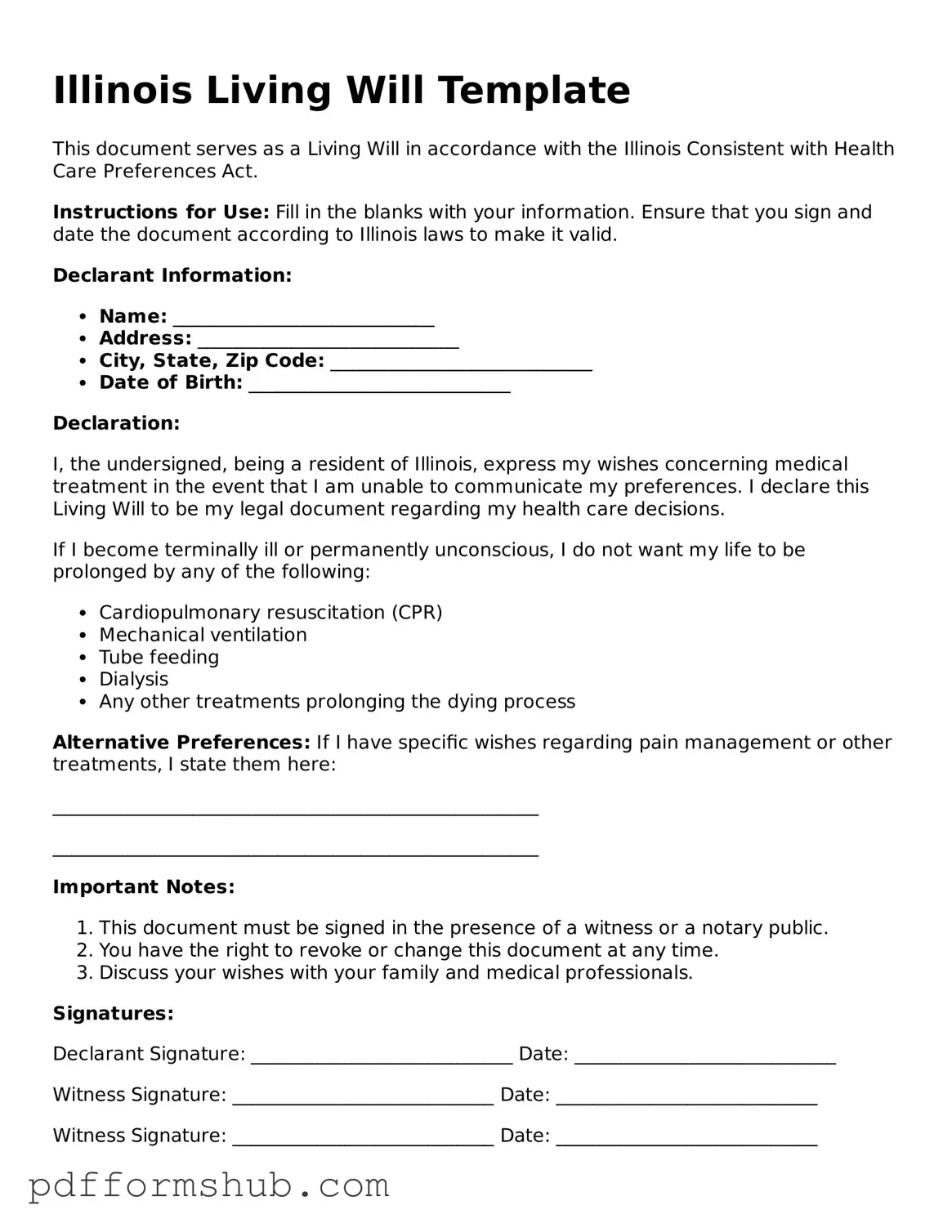Attorney-Verified Living Will Form for Illinois State
A Living Will is a legal document that outlines your wishes regarding medical treatment in case you become unable to communicate your preferences. In Illinois, this form allows you to express your desires about end-of-life care and other medical decisions. It is crucial to fill out this form to ensure your healthcare choices are respected, so take action by clicking the button below.
Customize Form

Attorney-Verified Living Will Form for Illinois State
Customize Form

Customize Form
or
Free PDF Form
Short deadline? Complete this form now
Complete Living Will online without printing hassles.